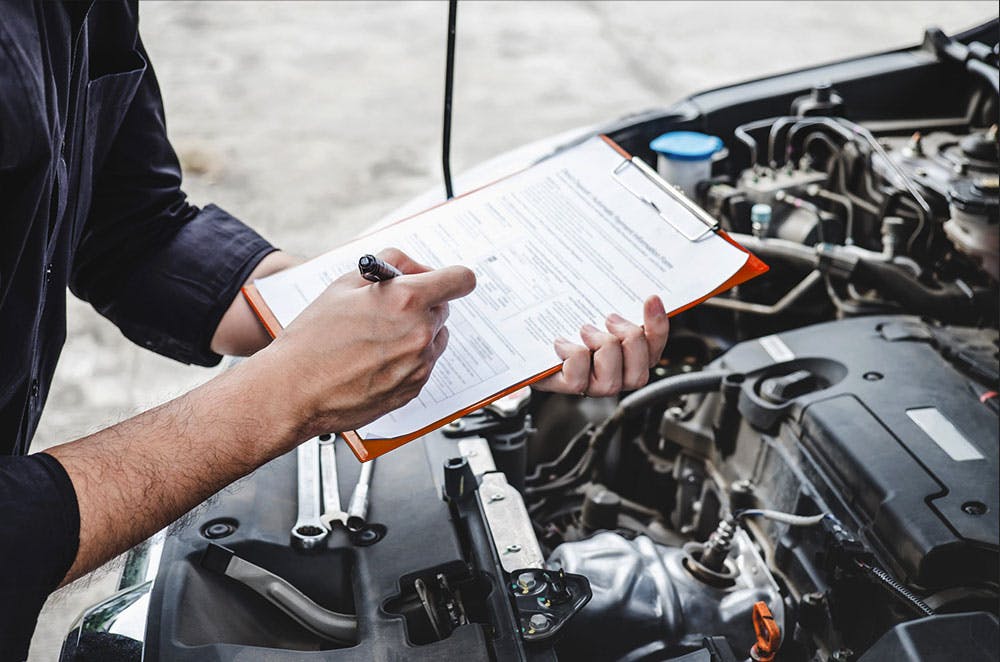
The Importance of Regular Car Maintenance
Purchasing a new car is an exciting experience, filled with the anticipation of enjoying the latest technology, improved fuel efficiency, and a smooth ride. However, the journey doesn’t end once you drive off the lot. To ensure your new vehicle remains in peak condition, routine maintenance is essential. Regular care not only prolongs the life of your car but also maintains its resale value and ensures your safety on the road. In this blog post, we'll explore the importance of routine maintenance, recommended time frames for various services, and tips to keep your car running like new.
Why Routine Maintenance Matters
- Prolongs Vehicle Life
- Regular maintenance keeps all components of your car functioning properly. Neglecting routine care can lead to the deterioration of vital parts, ultimately shortening your vehicle's lifespan. By following the manufacturer's recommended maintenance schedule, you can avoid costly repairs and keep your car running smoothly for years.
- Maintains Resale Value
- A well-maintained car retains its value better than one that has been neglected. When it comes time to sell or trade in your vehicle, having a complete service history can make a significant difference in its market value. Potential buyers and dealerships prefer cars with documented maintenance records, as it assures them that the vehicle has been well cared for.
- Ensures Safety
- Regular maintenance is crucial for the safety of you and your passengers. Worn-out brakes, tires with insufficient tread, or a malfunctioning engine can lead to dangerous situations on the road. Routine checks and services help identify and address potential issues before they become serious problems.
- Improves Fuel Efficiency
- A car that is well-maintained runs more efficiently, which means better fuel economy. Simple tasks like changing the oil, replacing air filters, and ensuring your tires are properly inflated can contribute to optimal engine performance and reduced fuel consumption.
Recommended Maintenance Time Frames
To keep your new car in top condition, it's essential to follow a maintenance schedule. While the specific intervals may vary depending on the make and model of your vehicle, the following time frames provide a general guideline:
- First Month (or 1,000 Miles)
- Initial Inspection: After the first month or 1,000 miles, it's a good idea to bring your car in for an initial inspection. This checkup ensures that everything is functioning correctly and that there are no manufacturing defects. The technician will typically inspect the engine, brakes, and suspension components.
- Every 3 Months (or 3,000-5,000 Miles)
- Oil and Filter Change: Regular oil changes are crucial for keeping your engine lubricated and running smoothly. Fresh oil helps reduce friction and prevent overheating. Depending on your vehicle and driving conditions, this service is typically needed every 3,000 to 5,000 miles.
- Tire Inspection and Rotation: Tires should be inspected for wear and proper inflation. Rotating your tires regularly helps ensure even wear, extending their lifespan and improving handling.
- Every 6 Months (or 6,000-7,500 Miles)
- Brake Inspection: Your vehicle's braking system is one of its most critical safety features. Regular brake inspections help identify worn brake pads, damaged rotors, and other issues that could compromise your ability to stop safely.
- Battery Check: Over time, your car's battery can lose its charge. A bi-annual check can help ensure it’s in good condition and avoid unexpected breakdowns.
- Every 12 Months (or 12,000-15,000 Miles)
- Full Vehicle Inspection: A comprehensive annual inspection should cover all major systems, including the engine, transmission, suspension, exhaust, and electrical systems. This is an opportunity to address any minor issues before they become significant problems.
- Air Filter Replacement: The engine air filter prevents dirt and debris from entering your engine. Replacing it annually helps maintain engine performance and fuel efficiency.
- Every 24 Months (or 30,000 Miles)
- Coolant Flush: Your car's cooling system prevents the engine from overheating. Over time, coolant can become contaminated or lose its effectiveness, so it's essential to flush and replace it every two years.
- Brake Fluid Replacement: Brake fluid is hygroscopic, meaning it absorbs moisture over time. This can lead to a decrease in braking performance. Replacing the brake fluid every two years helps ensure your brakes remain responsive.
- Every 36 Months (or 40,000-45,000 Miles)
- Transmission Service: The transmission is a critical component of your vehicle that requires regular care. Depending on your car, this may involve changing the transmission fluid, filter, and inspecting for wear or damage.
- Spark Plug Replacement: Spark plugs play a vital role in the combustion process. Worn spark plugs can lead to poor engine performance and reduced fuel efficiency. Replacing them every three years is typically recommended.
- Every 60 Months (or 60,000-75,000 Miles)
- Timing Belt Replacement: The timing belt is a crucial engine component that controls the timing of the engine’s valves. A worn or broken timing belt can lead to significant engine damage. Replacing it every five years is a wise precaution.
- Suspension and Steering Check: The suspension and steering components should be inspected for wear and tear every five years. Replacing worn parts can improve ride quality and handling.
Tips for Maintaining Your New Car
- Follow the Manufacturer’s Recommendations
- Always refer to your vehicle's owner’s manual for specific maintenance intervals and procedures. The manufacturer knows your car best and provides guidelines tailored to your specific model.
- Keep a Maintenance Log
- Maintain a detailed log of all services performed on your vehicle. This record is invaluable for tracking your car's maintenance history and can enhance its resale value.
- Use Quality Parts and Fluids
- When it comes to replacement parts and fluids, always choose high-quality options that meet the manufacturer's specifications. Using inferior products can compromise your vehicle's performance and longevity.
- Pay Attention to Warning Signs
- If your car displays warning lights on the dashboard or you notice unusual noises, vibrations, or smells, don’t ignore them. These could be signs of a more significant issue that requires immediate attention.
- Choose a Trusted Service Provider
- Whether it's a dealership or an independent mechanic, choose a service provider with a good reputation for quality work. Regular maintenance from skilled professionals ensures your car receives the best care possible.
Routine maintenance is the key to keeping your new car running smoothly, efficiently, and safely. By adhering to a regular maintenance schedule, you’ll not only prolong the life of your vehicle but also enjoy peace of mind knowing that your investment is well-protected. Remember, the small cost of routine maintenance is a wise investment compared to the potential expense of major repairs due to neglect. Take care of your car, and it will take care of you for many miles to come.








